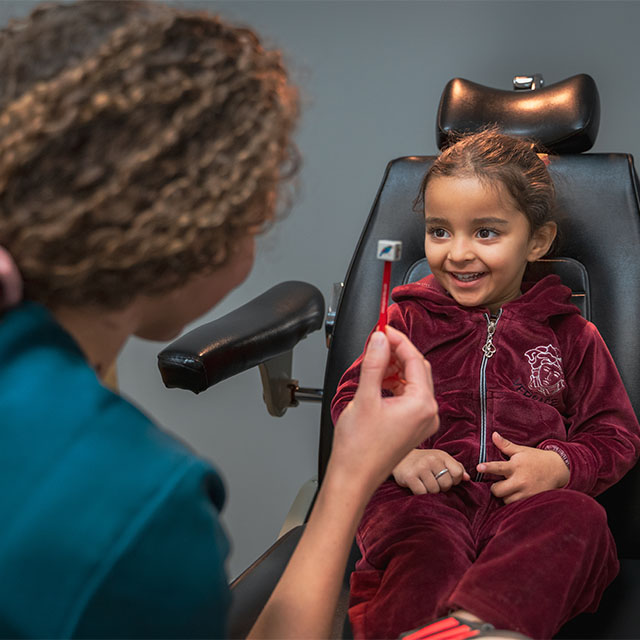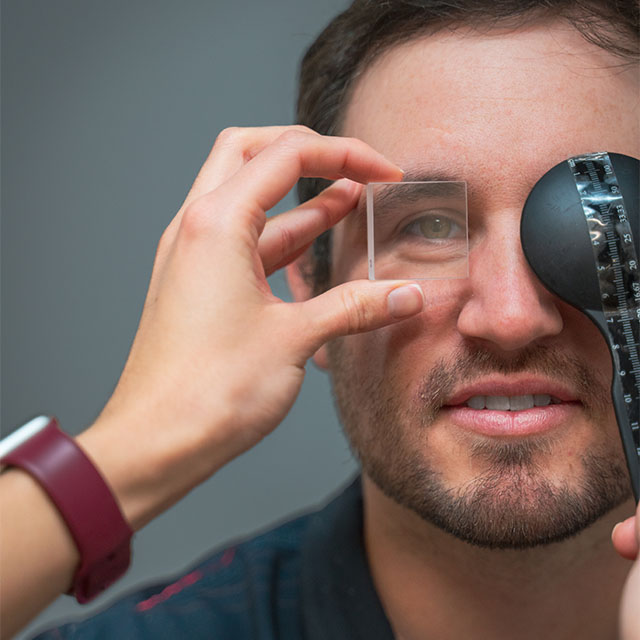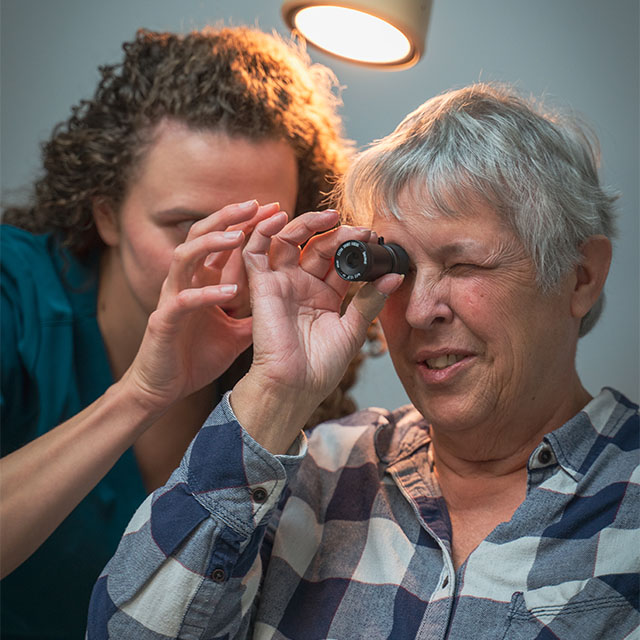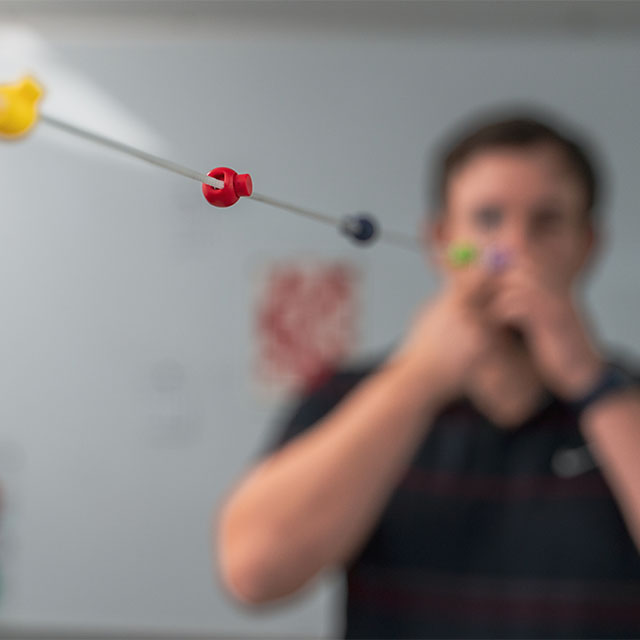Concussion Vision Rehabilitation
With Dedicated Support
Vision is a process. Our eyes and brain team up to create effortless, detailed, 3D images. From recognizing a loved one’s face to scoring a winning goal, vision can guide movement and memory.
But when the brain experiences trauma or visual neural pathways lack development, it can disrupt visual processing.
Dr. Capo has completed specialized neuro-optometric training and collaborates with numerous health specialists—including neurologists, neuro-ophthalmologists, physiotherapists, and kinesiologists—to provide patients with a comprehensive and integrated care network.
What Is A Neuro-Optometric Assessment?
Regular eye exams are important for overall eye health, but they can overlook vision problems caused by neurological conditions. That’s where a neuro-optometric assessment comes in. The evaluation reviews various visual skills, from eye focusing to eye movements.
This specialized testing can help identify vision conditions so we can provide a treatment plan tailored to your needs.
I’ve been struggling with Post-Concussion Syndrome for a few years now, and was recently referred to Dr. Capo for ongoing balance issues. After a detailed & thorough examination, Dr. Capo determined that although I have 20/20 vision, I’m suffering with “convergence issues”. She then prescribed me with prism glasses and vision therapy, which have proved to be one of the most profound & helpful therapies I’ve had in my concussion journey thus far.
~ Patient, Age 60

Who Should Have A Neuro-Optometric Vision Assessment?
While kids are a main focus of our practice, we’re also a dedicated vision therapy clinic for all ages. We perform neuro-optometric and binocular vision assessments for anyone who has experienced an acquired brain injury (such as concussion, trauma, or stroke) or patients with neurodegenerative conditions (such as Parkinson’s disease, Alzheimer’s, or multiple sclerosis).
Common Symptoms Of Brain-Related Vision Problems
Vision problems caused by neurological conditions can affect more than how clearly you can see. Changes to your visual abilities can interfere with common visual tasks like reading, driving, and computer use.
Patients can also experience:
- Blurred or double vision
- Poor depth perception
- Poor peripheral (side) vision
- Balance difficulties
- Headaches or eye strain
- Frequent blinking or squinting
- Slower processing speed
- Difficulties making timely decisions
Prism Assessment
Prism correction is used in eyeglasses to manage binocular vision or eye teaming problems. When the eyes see mismatched images, the prism can refract light before it reaches the eye. The prism shifts the position of an image so that both eyes experience an aligned image.
The benefits of prism correction can include improving:
- Eye strain
- Double vision
- Headaches
Dr. Capo, who is residency-trained in binocular vision, can perform a prism assessment to determine your prism correction prescription.
The Next Steps After Assessment
Receiving the care you need begins with an assessment. Dr. Capo is your ally, working alongside your healthcare team to support your overall recovery. We can help you feel comfortable and confident returning to normal daily activities with dedicated, personalized care.
Through thoroughly evaluating your visual abilities, we’ll identify your unique care needs and construct a vision therapy plan tailored to you.
Book your appointment today.
What We Do

We're here to help your little one protect their sight for years to come. Look out for your kid's life-long vision with early eye care.

When the brain experiences trauma, visual processing may be disrupted. Specialized Vision Therapy treatment can help with your recovery.

Daily tasks can be difficult for a person with low vision. With a low vision assessment and function solutions you can still live your best life.

Vision therapy uses evidenced-based solutions & personalized care to improve visual function. Find out if your child's vision is working as it should.
